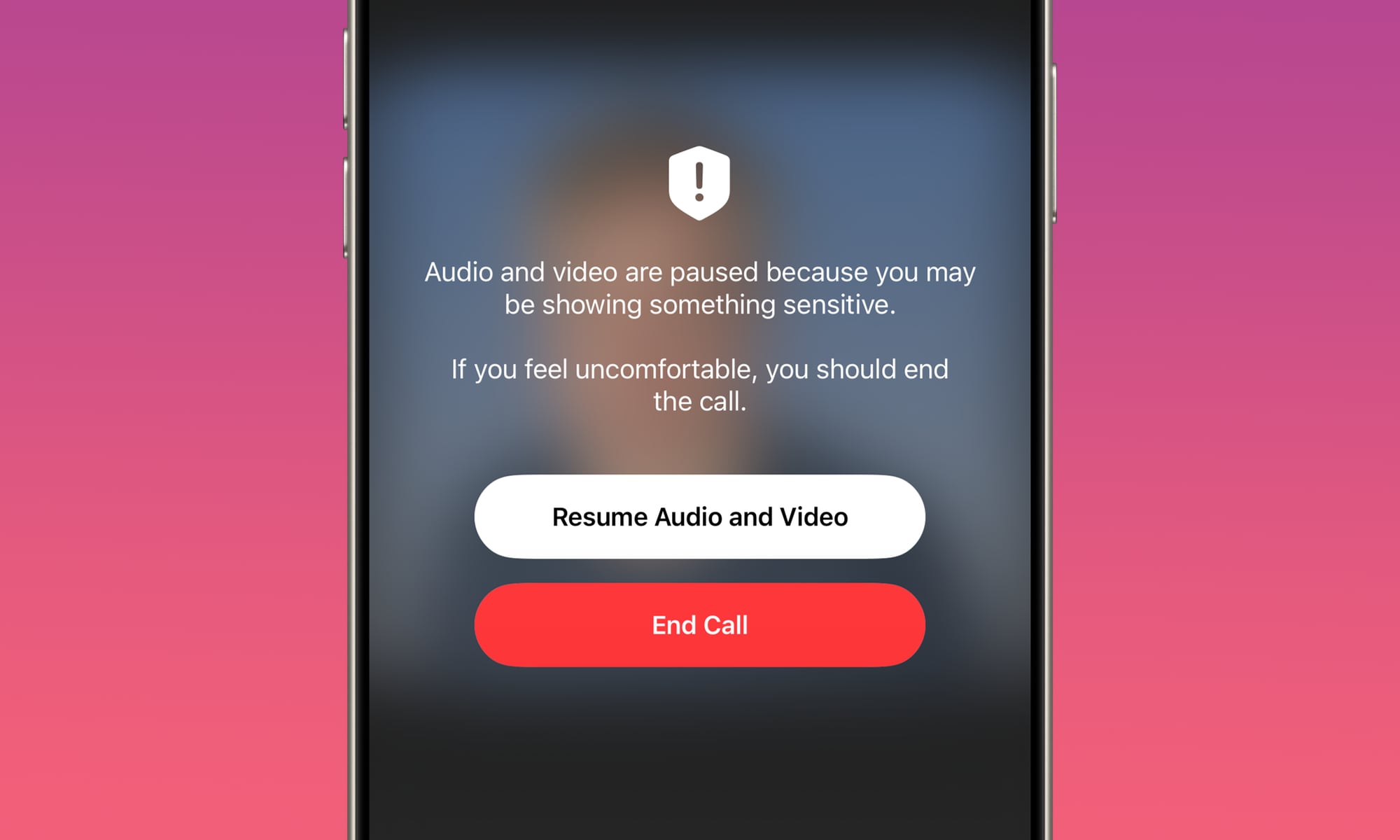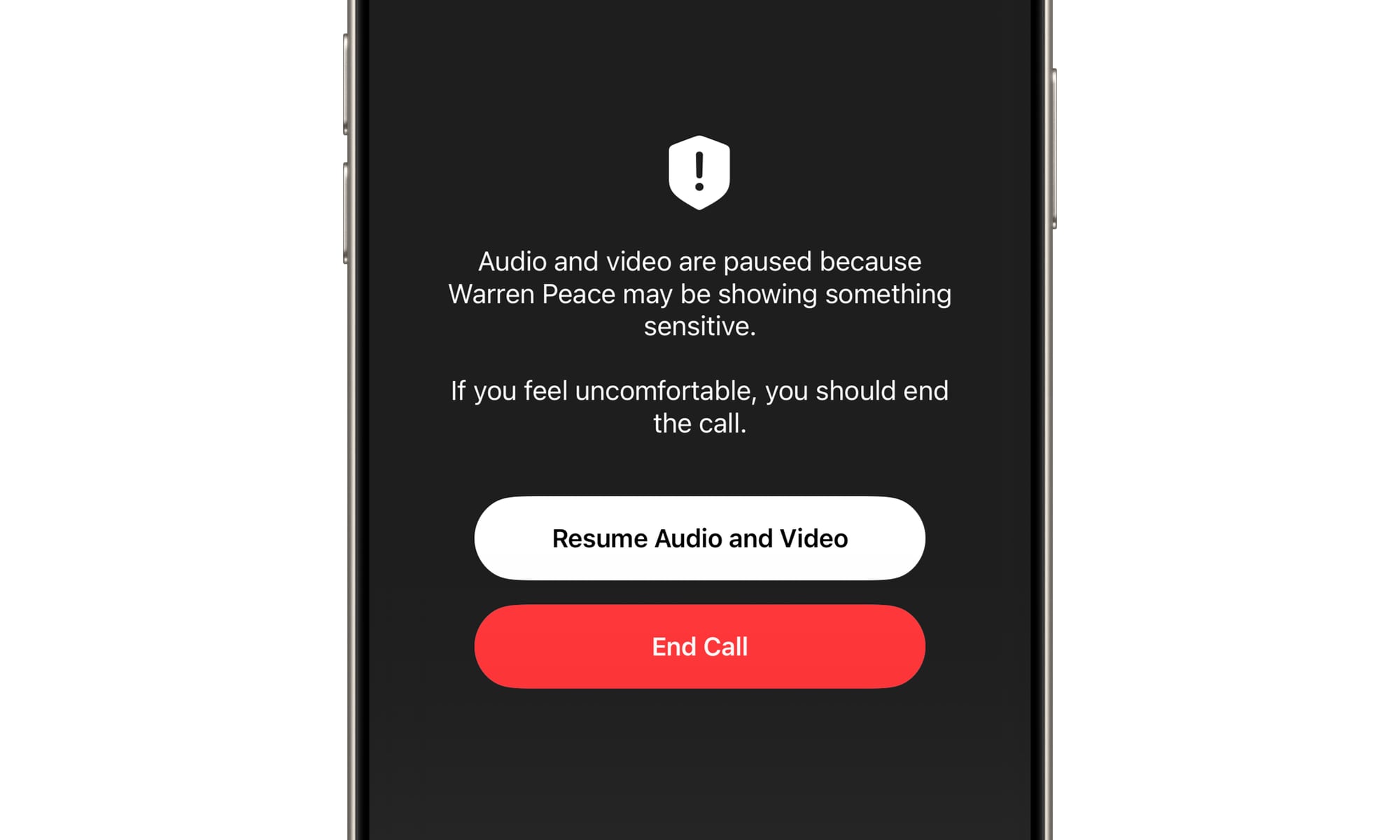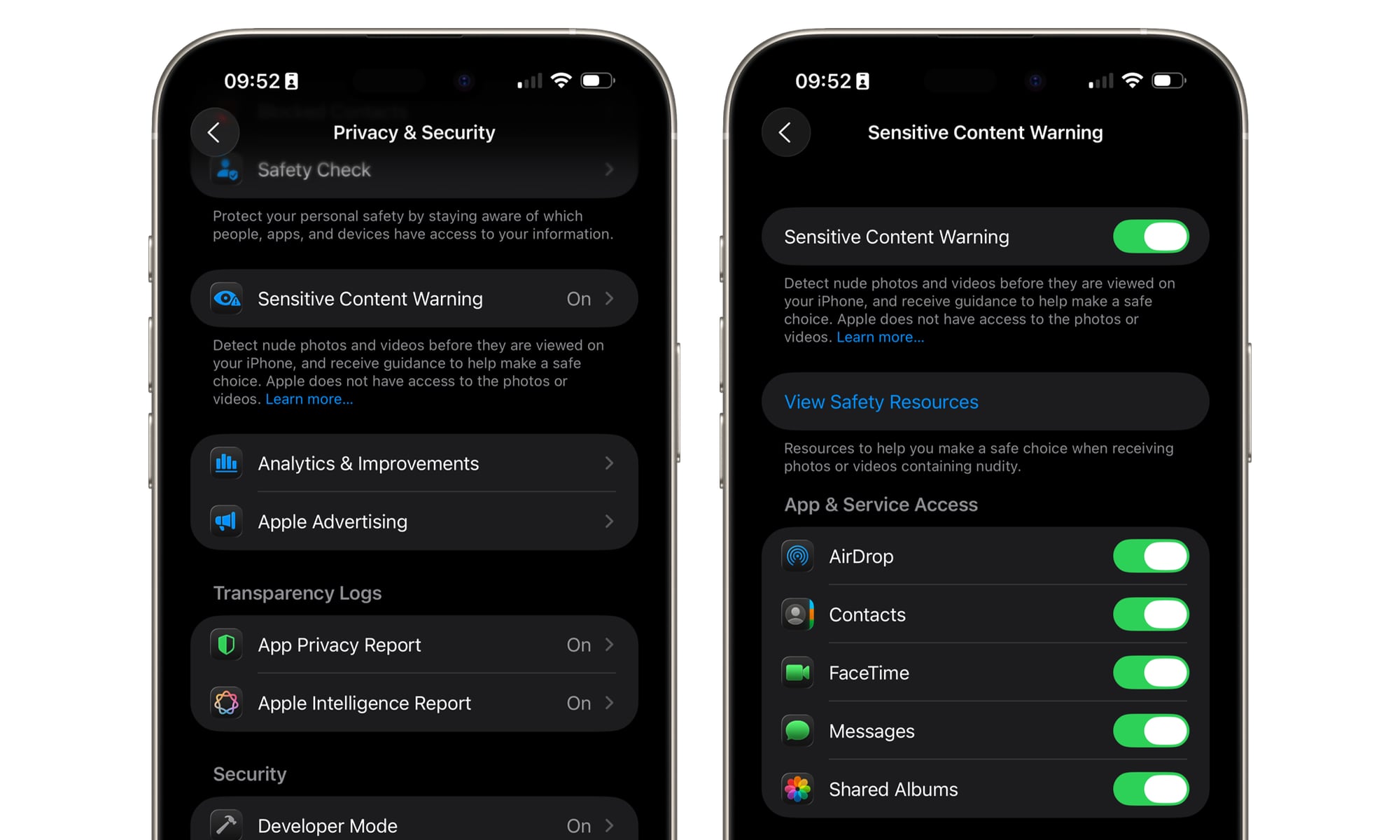FaceTime in iOS 26 Hits Pause When the Clothes Come Off

Toggle Dark Mode
This year’s big iOS 26 release contains some fun and exciting new features, including a new Liquid Glass design, big updates for the built-in Wallet, CarPlay, and Messages apps, and more. However, one new feature has recently been discovered that was not announced during Apple’s Worldwide Developers Conference (WWDC) keynote: If one of the participants of a FaceTime call begins disrobing, the app will freeze your call’s audio and video.
This “feature,” apparently designed to protect minors on FaceTime calls, not only applies to calls that include minors, but is also enabled on calls between two consenting adults!
Apple briefly mentioned a set of new family tools for child accounts during the keynote, but the details, including FaceTime’s nudity detection, were only shared in its press release after the event:
Communication Safety expands to intervene when nudity is detected in FaceTime video calls, and to blur out nudity in Shared Albums in Photos.
As shared by iDeviceHelp on X, it appears that the current iOS 26 beta “intervenes” by freezing all FaceTime calls when nudity is detected, even when it’s just you and your of-legal-age boo on the call.
When the app detects nudity, it will show a warning message similar to the following:
“Audio and video are paused because you may be showing something sensitive. If you feel uncomfortable, you should end the call.”
The message above will appear if the nudity is detected on your end; otherwise, you’ll see a message that lists the other person’s name.

To be fair, the user won’t be blocked from continuing; they’re given the option to Resume Audio and Video or End Call. This warning is only shown the first time that nudity is detected; if the user chooses to continue the call, they’ll receive no further warnings.
We’ve done some further investigation, this feature appears to be tied to the new Sensitive Content Warning setting that Apple added in iOS 17, making it easy for consenting adults to switch off if they’d rather not be bothered during their special moments.
This option can be found in Settings > Privacy & Security. When enabled in iOS 18, it uses on-device machine learning to detect any photos and videos that contain nudity and wind up on your iPhone, whether those come in via AirDrop, Contact Posters, Messages, or FaceTime Video Messages. Any detected nudity is automatically blurred out so you can choose whether you want to see them or not.
The new feature described in this article appears to be taking this protection a step further. However, users can still toggle it off by disabling Sensitive Content Warnings entirely or individually switching off FaceTime — a new setting in iOS 26 that replaces “Video Messages” from iOS 17 and iOS 18.
Note that Sensitive Content Warnings are separate from Communication Safety. The latter is a parental control feature that can be enforced separately for kids’ devices under the Screen Time section of the Settings app, where they won’t be able to turn it off without parental permission.
Users concerned about privacy issues with Apple’s detecting nudity needn’t worry, as no data is sent to Apple when determining if an image is showing nudity.
Apple’s existing Communication Safety features work as follows:
Communication Safety uses on-device machine learning to analyze photo and video attachments and determine if a photo or video appears to contain nudity. Because the photos and videos are analyzed on your child’s device, Apple doesn’t receive an indication that nudity was detected and doesn’t get access to the photos or videos as a result.
This means that the entire process takes place on-device, so Apple receives no data (including images) about the contents of your call. In the case of this new iOS 26 feature, it also means that users won’t be notified of potential nudity if they’re using FaceTime on an older version of iOS, iPadOS, macOS, or through a web browser.
There is also no reporting that occurs, even for children who are part of a family group. Apple initially planned to notify parents when kids under 13 deliberately chose to view explicit content after being warned, but rethought that policy before releasing the feature in iOS 15.2 after child safety advocates expressed legitimate concerns that such notifications could put young children at risk by triggering a potentially abusive parent.
As noted above, iOS 26 is still in early developer beta testing, meaning the features of the operating system can and will change before the final version of the software is ready for release to the public later this year.
Apple has been working for several years to protect minors from online abuse.








